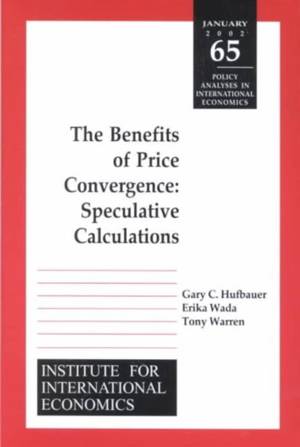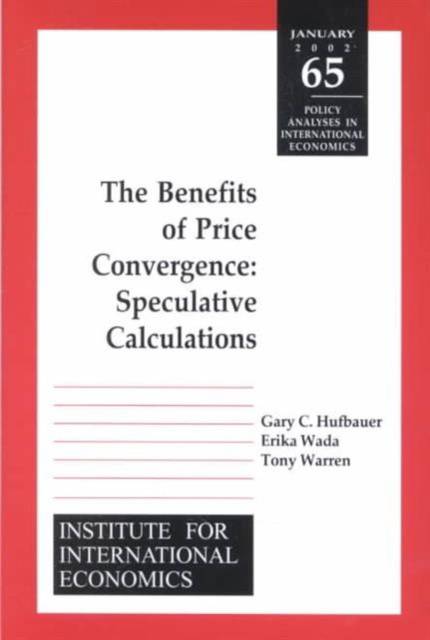
En raison d'une grêve chez bpost, votre commande pourrait être retardée. Vous avez besoin d’un livre rapidement ? Nos magasins vous accueillent à bras ouverts !
- Retrait gratuit dans votre magasin Club
- 7.000.000 titres dans notre catalogue
- Payer en toute sécurité
- Toujours un magasin près de chez vous
En raison de la grêve chez bpost, votre commande pourrait être retardée. Vous avez besoin d’un livre rapidement ? Nos magasins vous accueillent à bras ouverts !
- Retrait gratuit dans votre magasin Club
- 7.000.0000 titres dans notre catalogue
- Payer en toute sécurité
- Toujours un magasin près de chez vous
The Benefits of Price Convergence
Speculative Calculations
Gary Clyde Hufbauer, Erika Wada, Tony Warren
33,95 €
+ 67 points
Description
Price divergence is readily apparent to anyone who shops. Travelers from Manchester to London, or from Chicago to Paris, are hit by sticker shock. Products ranging from London Fog raincoats to Viagra are available over the Internet at half their retail store prices. Common experience tells us that prices for identical products differ between countries, between cities, even between neighboring shops. On the other hand, common experience also tells us that open markets and greater competition will force a degree of price convergence, if not identical prices.
This monograph presents speculative calculations that illustrate potential benefits from price convergence between countries. The authors take a fresh look at global economic integration by examining existing price divergence, and possible price convergence, across a range of consumer goods and then calculate the potential benefits of price convergence on a country-by-country basis and for the world as a whole. This study examines the potential benefits from price convergence resulting from more competition and market integration, not perfect competition and market integration. The authors calculate these benefits assuming that the world economy can attain the same degree of competition and market integration--and hence price convergence--as exists within the United States.Spécifications
Parties prenantes
- Auteur(s) :
- Editeur:
Contenu
- Nombre de pages :
- 128
- Langue:
- Anglais
- Collection :
- Tome:
- n° 65
Caractéristiques
- EAN:
- 9780881323337
- Date de parution :
- 08-01-02
- Format:
- Livre broché
- Format numérique:
- Trade paperback (VS)
- Dimensions :
- 150 mm x 230 mm
- Poids :
- 185 g

Les avis
Nous publions uniquement les avis qui respectent les conditions requises. Consultez nos conditions pour les avis.






